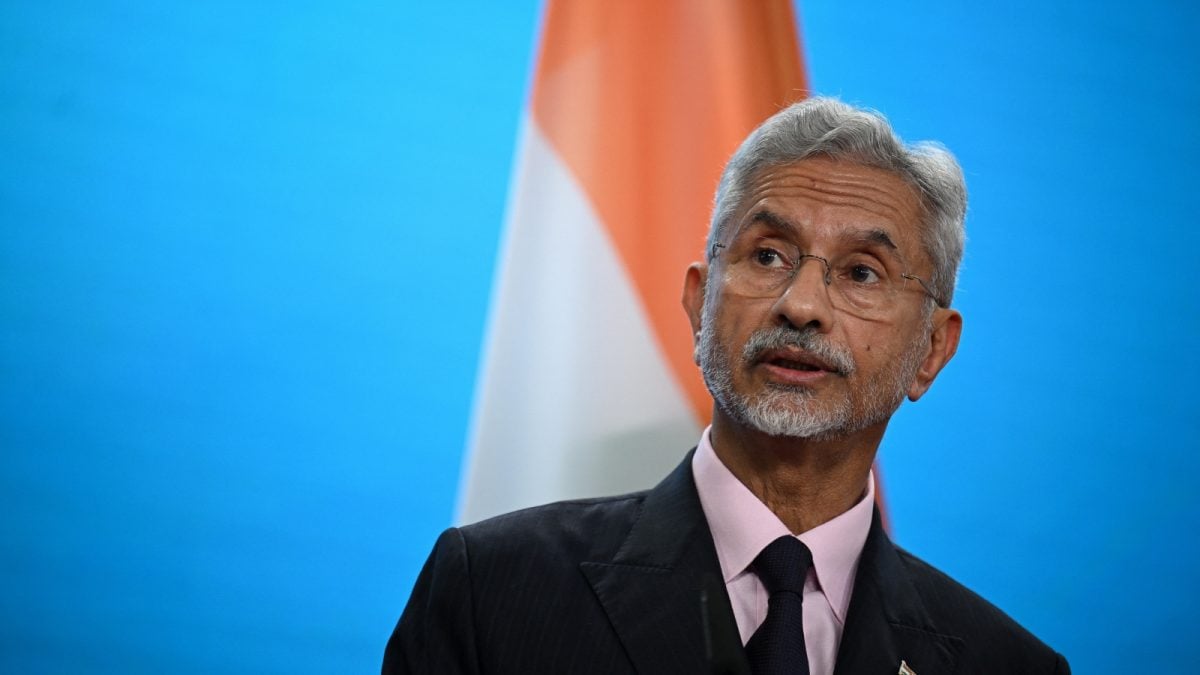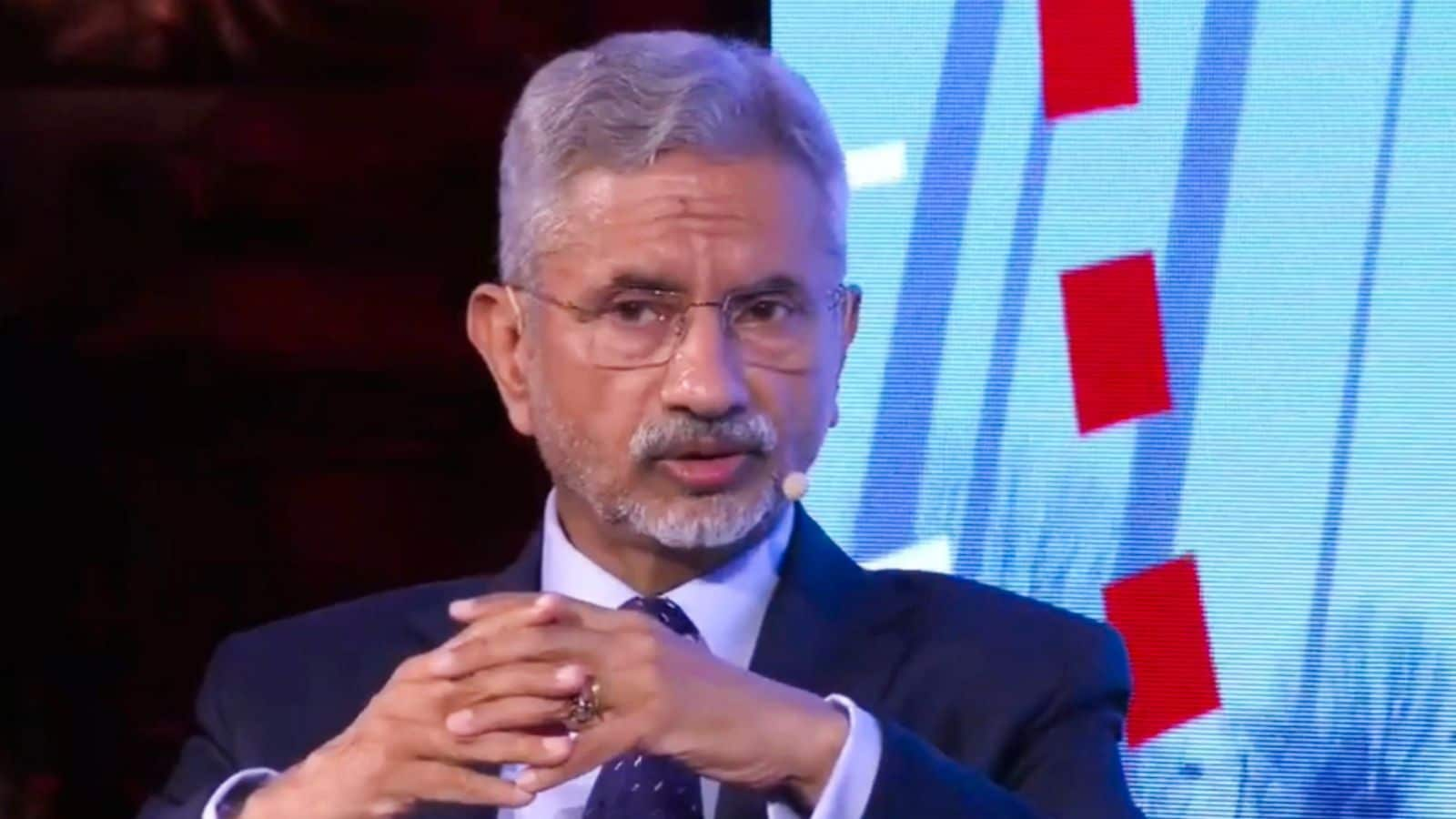Last Updated:May 28, 2025, 11:32 IST
The ordinance allows government to suspend or dismiss civil servants unilaterally, without conducting formal inquiries, disciplinary hearings, or providing opportunity for defence

Civil officials protest inside the Secretariat building in Dhaka, demanding the repeal of a government order giving it greater power to sack employees for disciplinary breaches. (AFP)
Bangladesh is in the throes of yet another protest, this time as government employees take to the roads to demand the repeal of the Public Service (Amendment) Ordinance, 2025, which grants the government sweeping powers to dismiss civil servants without due process.
On Tuesday, Bangladesh’s interim government led by Muhammad Yunus deployed paramilitary forces at the secretariat to quell protests that entered the fourth consecutive day. News agency PTI reported that paramilitary Border Guard Bangladesh (BGB), the police’s Special Weapons and Tactics (SWAT) unit, and elite anti-crime Raid Action Battalion (RAB) were stationed at the entrances of the secretariat complex housing ministries and important offices.
WHAT DO THE NEW RULES SAY?
As per the Dhaka Tribune, the Public Service (Amendment) Ordinance, 2025, issued by the President on Sunday, allows the government to fire employees for four types of disciplinary breaches through a show-cause notice, without initiating formal departmental proceedings.
Power To Dismiss Or Suspend Without Due Process: The ordinance allows government authorities to suspend or dismiss civil servants unilaterally, without conducting formal inquiries, disciplinary hearings, or providing an opportunity for defence. This bypasses the traditional safeguards that require an independent investigation or administrative tribunal before taking such punitive actions. The government can act swiftly to remove employees considered problematic or disloyal without the usual procedural protections.
Enhanced Executive Control Over Civil Servants: The new rules expand the powers of ministers and other executive officials to monitor, control, and direct the activities of civil servants. This includes tighter oversight on day-to-day functions and greater authority to issue instructions that civil servants must comply with. It reduces the autonomy traditionally enjoyed by bureaucrats in carrying out their duties.
Restriction On Employee Rights And Protections: The ordinance limits or removes several job security protections for civil servants. Civil servants lose or have restricted rights to: Appeal against disciplinary measures, access transparent grievance procedures, and participate in unions or collective bargaining. The provision weakens civil servants’ ability to defend themselves against arbitrary decisions.
Expanded Grounds for Disciplinary Action: The ordinance broadens the list of offences or behaviours that can trigger disciplinary actions, including vague categories such as “conduct prejudicial to public interest" or “disloyalty." These open-ended terms give the government a free hand to interpret and apply disciplinary measures, potentially targeting dissent or opposition within the civil service.
Changes to Promotion and Appointment Processes: The rules also affect promotion criteria and appointment procedures by increasing the role of political considerations. There is a shift towards executive discretion in appointments and promotions, reducing merit-based and seniority-based advancements. This risks politicising the bureaucracy and undermining professional standards.
Imposition of New Reporting and Accountability Mechanisms: Civil servants are now subject to stricter reporting requirements and are expected to provide regular updates and justifications for their work. The ordinance may also require the declaration of assets and tighter scrutiny of activities to prevent corruption, but critics argue these mechanisms can be used selectively or abusively.
WHY ARE EMPLOYEES PROTESTING?
According to the protesters, the ability of the government to dismiss employees without due process has created widespread fear and uncertainty, undermining morale and job stability. Many see the ordinance as a violation of fundamental rights, including the right to a fair trial and protection against arbitrary punishment.
Employees also fear that the rules could be used to target dissenters or those who do not align politically with the current interim administration, leading to a loss of neutrality within the civil service.
Critics argue that these rules could hamper the independence and effectiveness of the civil service, as fear of arbitrary dismissal might discourage officials from making impartial decisions or speaking up against malpractices.
The protesters, have described the ordinance as an “unlawful black law" and were seen chanting slogans rejecting it, such as – “The fire has been lit in our blood," “Abolish the unlawful black law," “Employees reject this illegal law," “We will not accept it," “Unite 18 lakh workers," and “No compromise, only struggle."
The unrest is unfolding amid rising national frustration with the interim government, which has held power for the past nine months amid mounting calls for fresh elections. Critics contend that under the leadership of Muhammad Yunus, the country’s law and order situation has deteriorated, and the lack of a democratically elected government is intensifying political instability.
HAS YUNUS LOST THE PLOT?
After Sheikh Hasina’s exit, Nobel laureate Muhammad Yunus was appointed to lead an interim government tasked with overseeing a transition and organising fresh elections in Bangladesh. However, Yunus’s regime has faced mounting criticism from various quarters due to its handling of governance, policy decisions, and political management during this turbulent period.
Critics argue that Yunus’s interim government lacks democratic legitimacy since it was not elected by the people. This has led to widespread distrust and skepticism about the regime’s authority, which is exacerbated by delays in holding elections. Despite promises to conduct elections by a certain deadline, delays and uncertainty have fueled political instability and public frustration. This has amplified calls for a return to an elected government.
Under Yunus’s administration, inflation has risen sharply, straining household budgets and provoking worker protests, especially in sectors like garment manufacturing. Protests by garment workers and other labour groups over low wages and poor working conditions have highlighted growing economic discontent.
The political turmoil and governance challenges have unsettled Bangladesh’s international partners and investors, with international human rights organisations expressing concern over crackdowns on protests and suppression of freedoms during the Yunus regime.
Location :Dhaka, Bangladesh
First Published:News world Bangladesh’s Controversial Service Law Is Sparking Nationwide Employee Unrest. Here’s Why

 1 month ago
1 month ago















